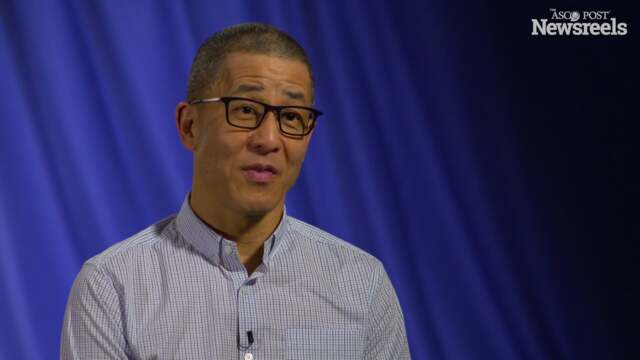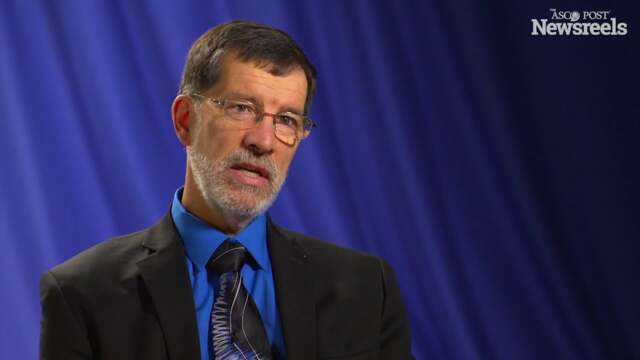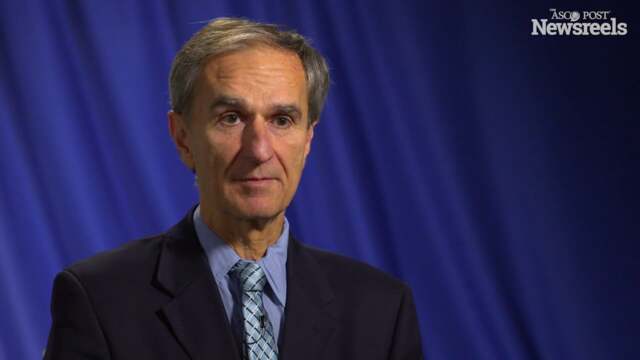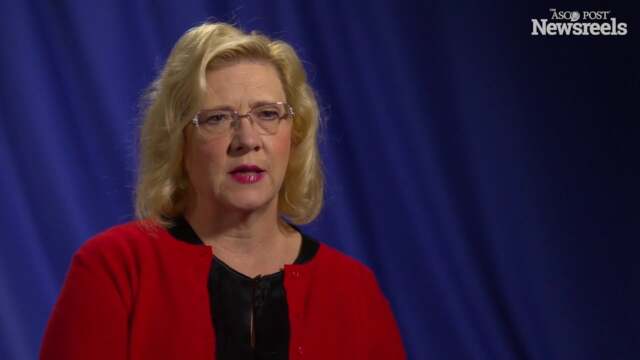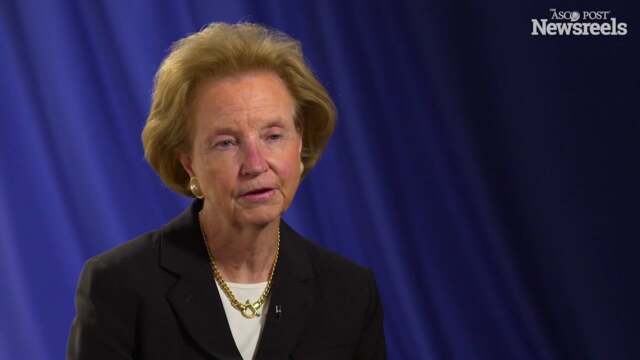Judith Vick, MD Candidate, and Rachelle E. Bernacki, MD, on A New Clinical Tool: The “Surprise Question”
2015 Palliative Care in Oncology Symposium
Judith Vick, MD Candidate, of Johns Hopkins University School of Medicine, and Rachelle E. Bernacki, MD, of Dana-Farber Cancer Institute, discuss a tool that could help clinicians identify seriously ill patients who would benefit from conversations about their goals and values (Abstract 8).
Anthony L. Back, MD
Anthony L. Back, MD, of Seattle Cancer Care Alliance, summarizes a general session on best practices and novel tools for enhancing communication between patients and oncology providers (Abstracts 8,9, 39).
Charles L. Loprinzi, MD
Charles L. Loprinzi, MD, of the Mayo Clinic, discusses olanzapine for the prevention of chemotherapy-induced nausea and vomiting in patients receiving highly emetogenic chemotherapy (Abstract 176).
Eduardo Bruera, MD
Eduardo Bruera, MD, of The University of Texas MD Anderson Cancer Center, discusses exciting developments in the assessment and management of cachexia, as well as a number of emerging pharmacologic and nonpharmacologic interventions (Abstract 67).
Betty Ferrell, PhD, RN
Betty Ferrell, PhD, RN, of City of Hope, discusses two papers that look at an important issue from different perspectives: depression and anxiety among family caregivers of patients with advanced cancer, and the link between oncologists’ dispositional affect and depressive symptoms in their patients with metastatic cancer (Abstracts 224, 214).
Kathleen Foley, MD
Kathleen Foley, MD, of Memorial Sloan Kettering Cancer Center, discusses the challenges of integrating palliative care in areas without sufficient resources or health-care infrastructure.
